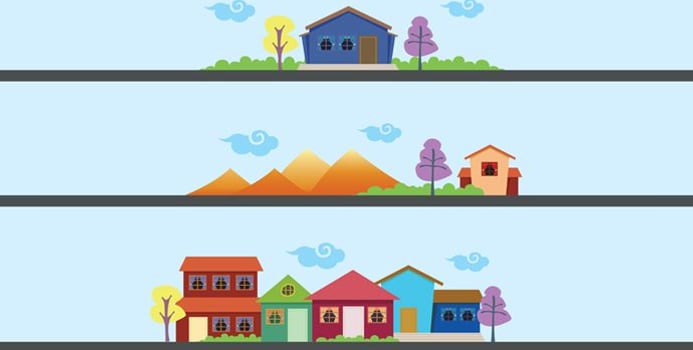Did you know that countries with temperate climates have higher rates of multiple sclerosis? Or that living in a densely populated neighborhood can decrease your risk of diabetes and obesity? Perhaps you guessed that living near a major highway means living with noise and air pollution, but did you know that it may also increase your risk of respiratory and cardiovascular diseases?
The booming field of “geomedicine,” sometimes known as environmental epidemiology, investigates how where you live affects your health. The findings are interesting for people who actually have a say in where they live. If you’re stuck where you are — because of family, work, or other obligations — knowing might be less-than-enthralling.
Factors such as altitude, climate, humidity, and proximity to water, greenery, or farms — along with numerous other variables — can affect your health in the long-term. Read on to find out how.
You Live: High Above Sea Level
According to research, people who live closer to the clouds are likely to be leaner than their sea-level counterparts. In fact, one study found that sea-level dwellers were up to five times more likely to be obese than those who lived at an elevation of 9,800 feet or higher, even when researchers controlled for variables like activity level. Time to move to Colorado?
You Live: Near a Major Road or Highway
Living near a major highway has been linked to health conditions such as asthma, cardiovascular disease, and even autism in children. The latter was investigated in a study of more than 300 children in metropolitan areas in California. Researchers found that mothers who lived within 1,000 feet of a freeway during a pregnancy were twice as likely to give birth to a child affected by autism.
You Live: Near an Ocean
Good news! That sea air must be doing something. Researchers who analyzed a data sample from the United Kingdom’s 2001 Census found that people who lived close to the coast were more likely to report their health as “good” when given a choice to classify it as “good," "fairly good," or "not good.”
You Live: In the Suburbs
Turns out all that sprawl might be triggering chronic health problems — including arthritis, headaches, breathing difficulties, and high blood pressure. According to one study, the effect is significant enough to mean that someone living in a compact city, such as San Francisco or Miami, might actually have a similar health profile as someone four years older living in a sprawling city, such as Baton Rouge or Atlanta. Researchers believe that physical inactivity may be a factor.
You Live: In or Near a Forested Area
Research from Japan has shown that taking advantage of wooded lots or parks in your area can reduce blood pressure and trigger the body’s parasympathetic nervous system, which is responsible for “rest and digest” functions. Longer trips to the woods may even boost your immune system, according to a study published in Environmental Health and Preventative Medicine.
You Live: In a Dry Climate
Exposure to low humidity over time can lead to dry and inflamed mucous membranes in your respiratory tract. Your mucous membranes are one of your body’s first lines of defense against colds and the flu which means that living in a dry climate can increase your risk of getting sick. Viruses are more likely to survive and spread when humidity levels are low, meaning a greater risk of infection.
[Image via Shutterstock]



